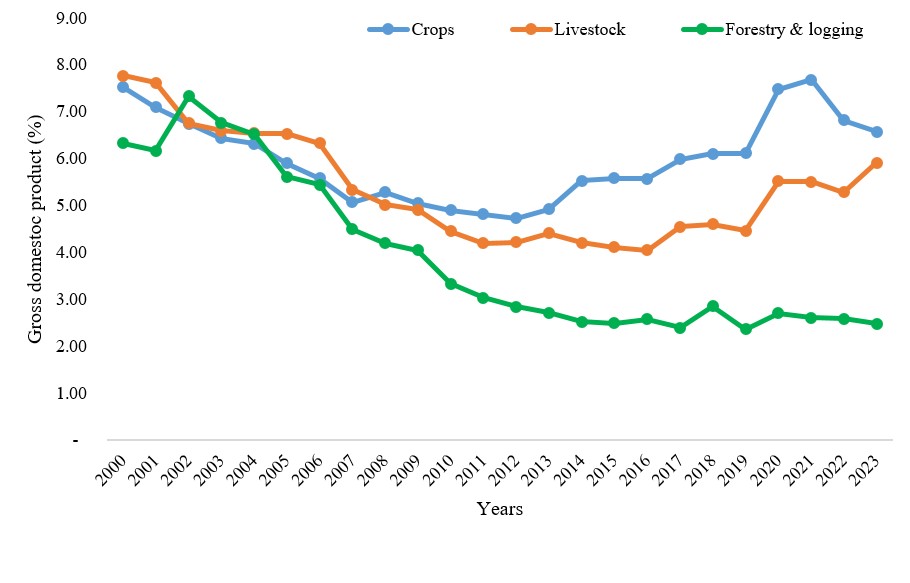A REVIEW OF AGRIBUSINESS IN BHUTAN: CHALLENGES, OPPORTUNITIES AND PROSPECTS
Keywords:
Agribusiness; Bhutan; Challenges; Crops; Forestry; Livestock; Opportunities;ProspectsAbstract
The agribusiness sector in Bhutan serves as a cornerstone of the nation’s economy, supporting the livelihoods of over 60% of the population while playing a vital role in ensuring food security and preserving cultural heritage. Despite its importance, the sector faces multifaceted challenges such as limited market access, financial constraints, labour shortages, vulnerability to climate change, and inadequate infrastructure. This review examines the current state of agribusiness in the country, focusing on challenges, opportunities, and prospects for growth. Key opportunities for agribusiness in Bhutan include the promotion of organic farming, tapping into high-value and niche markets for both livestock and crop products, and expanding agro-processing capabilities. Sustainable forestry and non-timber forest products (NTFP) also present huge potential for income diversification in the rural communities. This study emphasizes the need for enhanced infrastructure, financial inclusion, adoption of climate-smart agricultural practices and public-private partnerships (PPP) to drive transformation of the agribusiness sector in the country. By effectively addressing these existing challenges and leveraging the opportunities, Bhutan can achieve sustainable growth, contribute to rural development and align with the principles of Gross National Happiness (GNH) while responding to both national priorities and global demand for sustainable agricultural products.

Downloads
Published
Issue
Section
Categories
License
Copyright (c) 2025 BJAS

This work is licensed under a Creative Commons Attribution 4.0 International License.





